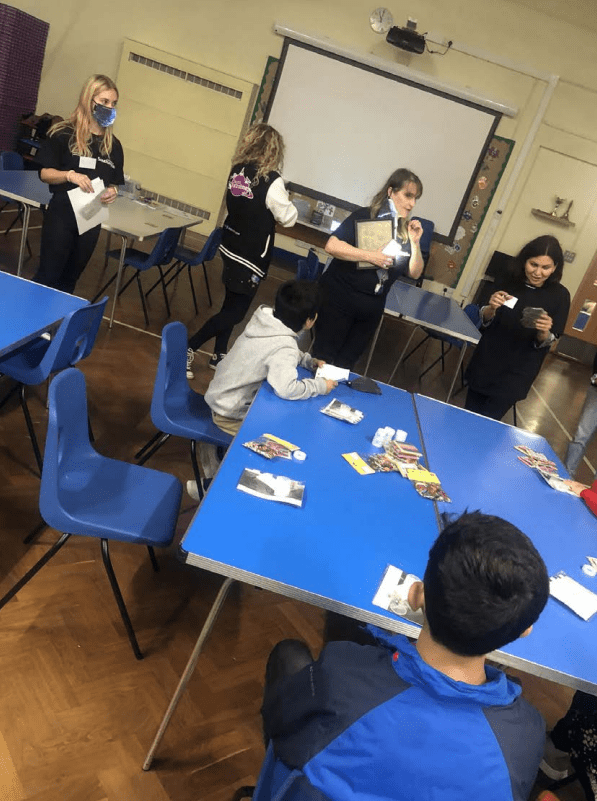
Engaging Refugees in Photonics Public Engagement
Southampton City Council asked the University to provide half-termly educational activities for Afghan refugees who had newly arrived in the country. In the first workshop, which took place in October, children assembled and used kaleidoscopes in order to teach them about the law of reflection and the difference between the incident and reflected ray.
Alice Isles, former PhD student within the Optoelectronic Research Centre (ORC), said: “We spent the session making kaleidoscopes and learning about space, although there was a language barrier, with the help of the translators, we were able to educate about light but also allow these children the opportunity to have some fun.”
Although uptake for the workshop was low, the children in attendance did make progress in their learning. This was largely due to the help of Afrooz Shoaa, a Photonics Researcher who acted as a Farsi interpreter. The activity of creating the kaleidoscopes was accessible for all and, afterwards, the children were able to use scientific terminology in English. A positive impact on their attitudes towards learning is also evident. Before the activity, pupils were asked to rate their attitude towards science using a Likert scale. On average, attitudes towards science were rated 4/5 (with 5 being a positive attitude). This went up to 4.6/5 after the workshop, with the event having the greatest impact (60% increase) on the youngest female participant. This fulfilled one of the other learning objectives of the workshop which was to provide children with a positive vision of women’s involvement in science and technology.
After this event, Pearl John, Sadie Jones and Emilie Gerouville presented at the SEPnet Interact Conference in Cardiff which is centred around encouraging best practice for outreach programmes in STEM. Emilie Gerouville, a PhD student within the Optoelectronic Research Centre (ORC), said: “I was very happy to be able to share my experience of working with Afghan refugees during a workshop on light. The discussions we had thereafter were also helpful as they gave me lots of ideas on how to improve next time.”
With almost 200 attendees, the outreach team were able to share and reflect upon their experience of encouraging public engagement in photonics. Their chosen case study was the workshop they had held for Afghan refugee children, whereby they shared the strengths of the day and reflected on ways in which they would improve in the future.